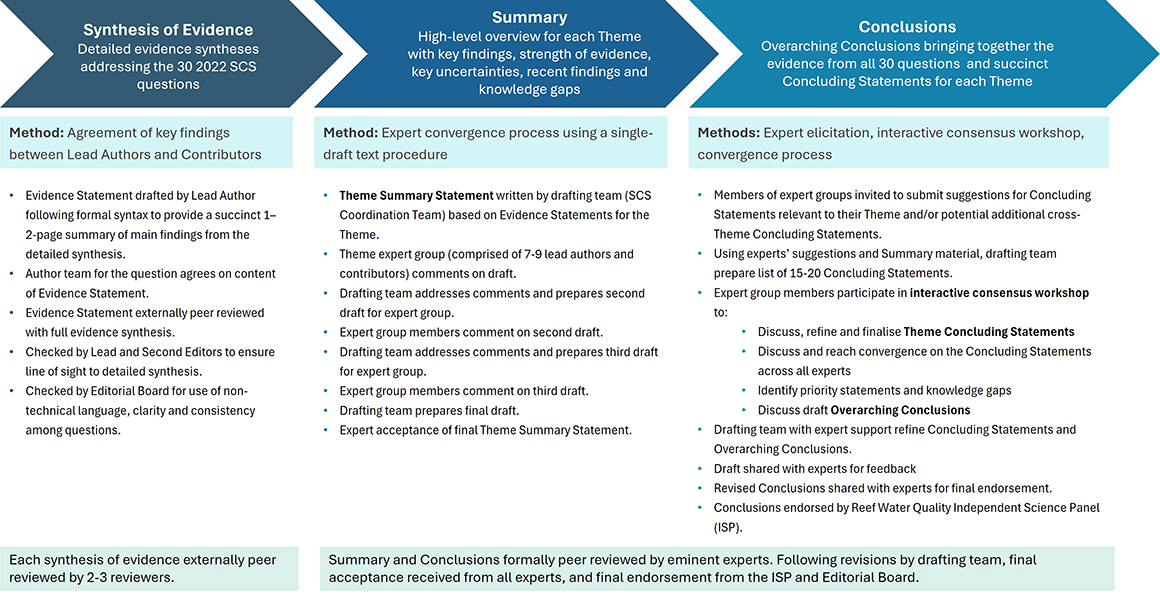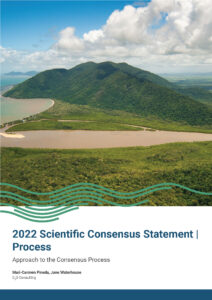A range of formal methods for achieving consensus were considered during the design phase. As a first step, the Scientific Consensus Statement’s Coordination Team (led by C2O Consulting) carried out a literature review to collate information on published consensus methods. Several of the most established consensus methods were evaluated as part of the literature review including the Delphi process, the nominal group technique (also known as the expert panel), the consensus development workshop and single-draft text procedure. The review informed a draft options paper which documented the benefits and potential challenges associated with each consensus method in relation to the 2022 Scientific Consensus Statement. The paper also identified that different approaches might be necessary for the two final outputs – the Conclusions and Summary to meet end user needs. To support the development of the process, a Consensus Process Working Group was formally established which included three external experts with experience in the design and implementation of scientific consensus processes, as well as members from the Reef Water Quality Independent Science Panel (ISP) and Reef 2050 Independent Expert Panel (IEP).
As part of the Synthesis of the Evidence, each of the 30 questions produced an Evidence Statement that provided a succinct summary of the findings relevant to policy and management action. Following completion of the peer review process for the Synthesis of the Evidence, these Evidence Statements were used as the basis for a ‘Single-Draft Text’ procedure to reach convergence on theme-level Summary Statements. This involved the Scientific Consensus Statement’s Coordination Team producing an initial draft Summary Statement based on the Evidence Statements for each theme. The draft Summary Statement was then refined by expert groups (7-9 Lead Authors and Contributors per theme) through three rounds of review and independent feedback to reach convergence among group members. Oversight and advice during this process was provided by a consensus method expert from the Consensus Process Working Group.
The final step of the consensus process was to reach agreement on the Conclusions for the 2022 Scientific Consensus Statement. The Summary document formed the basis for the development of the Conclusions, a succinct high-level document containing Overarching Conclusions and Concluding Statements for each Theme. The consensus process for developing the Conclusions involved 35 experts in an expert elicitation process, followed by an interactive consensus workshop facilitated by an external expert in translating science into policy. Additional rounds of feedback were coordinated by the Scientific Consensus Statement’s Coordination Team until agreement was reached by all experts, representing full endorsement of the Conclusions. The Summary and Conclusions documents were formally peer reviewed by three external independent eminent scientists and endorsed by the Reef Water Quality Independent Science Panel (ISP) who each reviewed the final content and examined both parts to ensure a clear line of sight to the more detailed evidence base.



